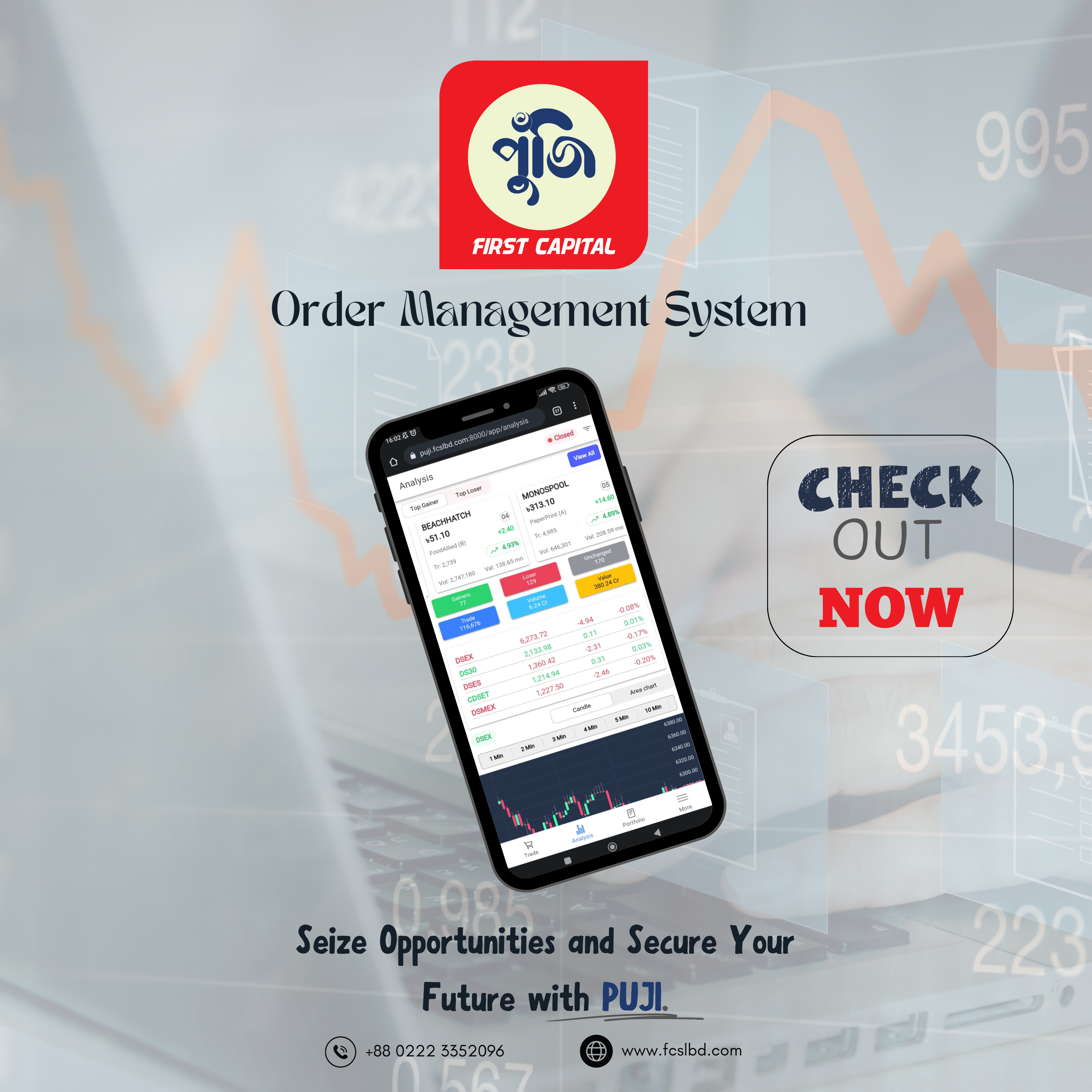Foreign investment in the Bangladesh’s capital market has nearly halved in the past two years, with investment in equity securities decreasing by 43.7 per cent from 2021 to 2023, according to Bangladesh Bank data.
The total foreign investment in equity securities was $1,925.10 million at the end of December 2021, which decreased to $1,084.63 million at the end of December 2023.
The total foreign investment, including debt and equity securities in the capital market of the country at the end of December 2023 stood at $2,080.00 million, decreasing by 42.2 per cent compared with that of $3,600.74 million at the end of December 2021.
Of the total foreign investment in equity securities at end of December 2023, United States-based investors accounted for $497.48 million in investments in the Bangladesh’s stock market, with a 52.75-per cent decrease from their total equity securities investments at the end of December 2021.
DSEX, the key index of Dhaka Stock Exchange, lost 510 points to close at 6,246.49 points at the end of 2023 compared with that of 6,756.65 points at the end of 2021.
The US-based investors had $1,052.97 million in investments as of December 2021.
United Kingdom-based investors held the second position in foreign investments in Bangladesh’s capital market in this timeframe, having $140.36 million or 12.9 per cent as their total investments in equity securities.
Luxembourg-based investors registered the third position with $135.12 million or 12.5 per cent of the total foreign investments at the end of December 2023.
The two countries had $205.92 million and $289.15 million worth investments respectively in the country’s capital market at the end of December 2021.
Singapore-based investors invested $97.01 million at end of December 2023, with a plunge from $141.59 million posted at the end of December 2021.
The other countries had $41.86 million in investments in the country’s equity securities at the end of December 2023, which is nearly half comparing with $82.95 in equity securities investments at end of December 2021.
Investment from Mauritius and Cayman Islands plummeted to $10.70 million and $13.53 million respectively at the end of December 2023, compared with that of $48.57 million and $17.24 million in equity securities investments at the end of December 2021.
Investments from Canada- and Pakistan-based investors decreased slightly in the past two years, from $43.49 million and $17.02 million respectively in equity securities investments at the end of December 2021 to $42.74 million and $7.71 at the end of December 2023.
Investments from British Virgin Islands and the UAE rose to $43.04 million and $55.08 million respectively in December 2023 from $14.07 million and $12.13 million in December 2021.
Foreign currency balance in the non-resident investor’s taka accounts (NITA) was $47.25 million in December 2023, $63.32 million in December 2022 and $26.37 million in December 2021.
The foreign currency inflow to NITA was $92.56 million in December 2023, recording a decrease from $151.55 million in December 2022 and $257.45 million December 2021.
The outflow from NITA declined to $302.45 million in December 2023 from $549.31 million in December 2021.
The BB data showed that the foreign investors purchased shares worth $99.37 million against their selling of shares worth $107.53 million in the calendar year 2023, making the net foreign investment $8.16 million negative.
At FY21, the net overseas investment stood at $293.91 million negative as the foreigners purchased shares worth $323.50 million against their selling of shares worth $617.41 million.
In recent months, the investors have been struggling with various issues, including rising inflation and interest rate hike, lack of confidence in the stock market, concerns over external debts and depleting foreign reserve of the country.
Volatility and risks on the market might prompt the foreign investors to take their funds to safe havens, market operators said.
Source: https://www.newagebd.net/post/stocks/236407/foreign-investment-in-stocks-halves




